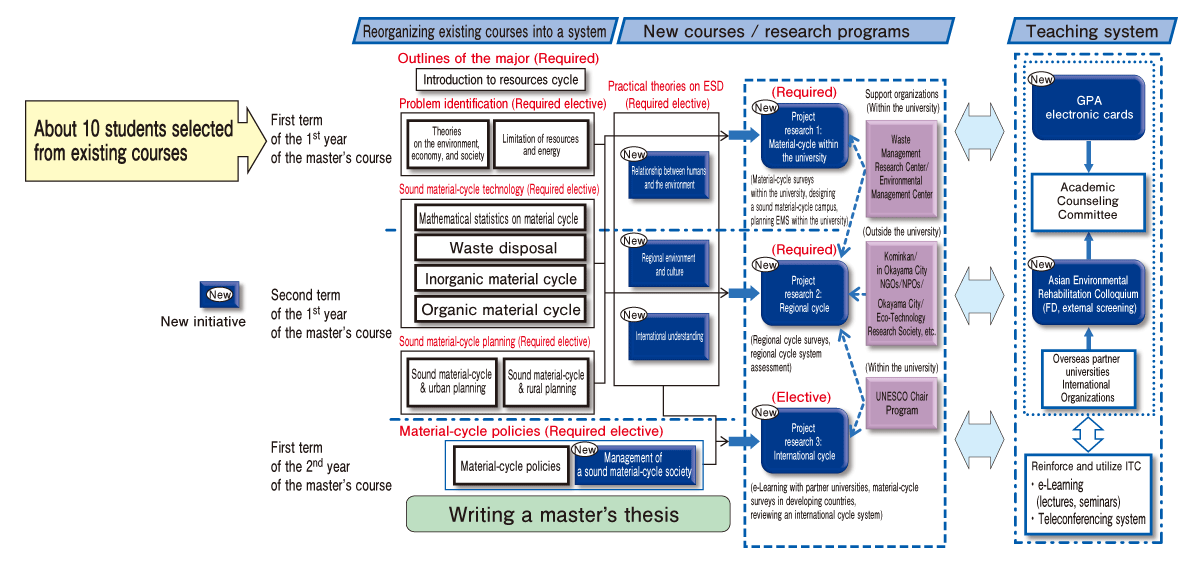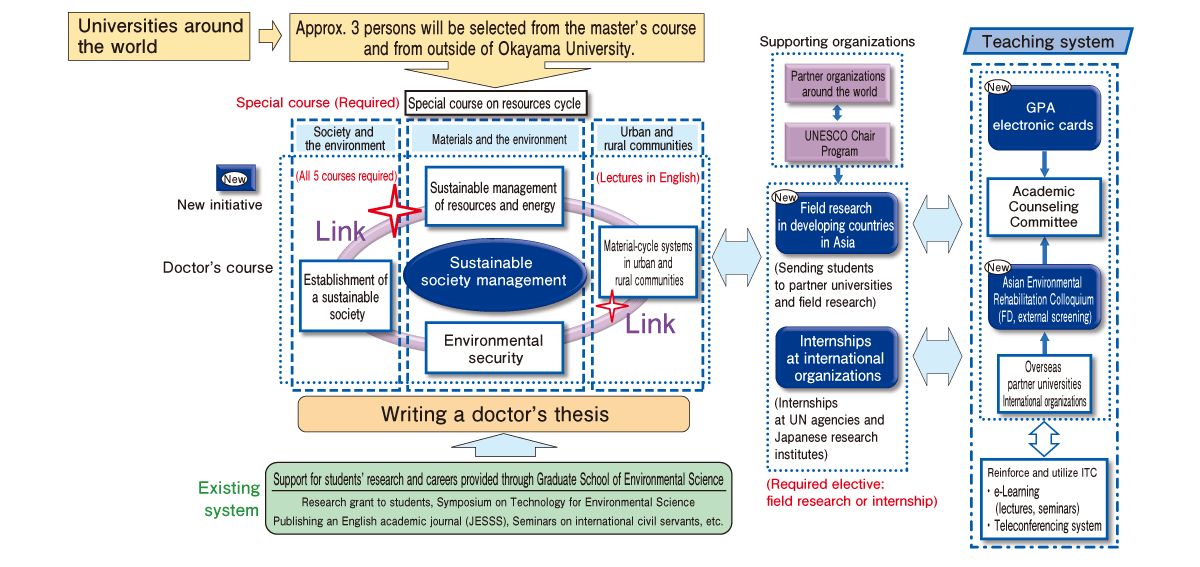
| Development of environmental specialists capable of contributing to the creation of a sound material-cycle society requires the cultivation of practical capacities through which the relationship between the environment and society may be understood from an interdisciplinary and global perspective and which bring about socioeconomic changes, as well as the acquisition of expert knowledge and techniques concerning resources and energy cycle and solid waste management. The "Special Course on Environmental Rehabilitation in Asia" of the Program aims to foster the practical capacities needed to take the lead in making socioeconomic changes by incorporating into its curriculum ESD approaches and project research on university, community, and international levels, in addition to the Graduate School of Environmental Science's interdisciplinary curriculum which mingles various environmental studies in the fields of science, humanities, and medicine.
Master's Course The existing curriculum of the Graduate School of Environmental Science has been restructured from the perspective of creating a sound material-cycle society, which takes into account "economy and society, technology, and materials and resources" and the system of "problem identification and cycle analysis, technology, planning, and policies." In addition to advanced knowledge and technology concerning the creation of a sound material-cycle society, a "Practical Theory on ESD" and "university, community, and international project research" have been introduced with the goal of assisting students in acquiring the practical capacities required to take the lead in making socioeconomic changes. Doctor's Course The curriculum is designed as a circular structure with “studies on management of a sustainable society” as its core and “society and the environment,” “materials and the environment,” and “urban and rural communities” as parallel key themes. In the hopes of developing environmental specialists who can take the lead in the international arena with advanced capacities for practicing ESD, all courses include lectures in English, and a “field research in Asian developing countries” and “internships at international bodies” will be offered. |

